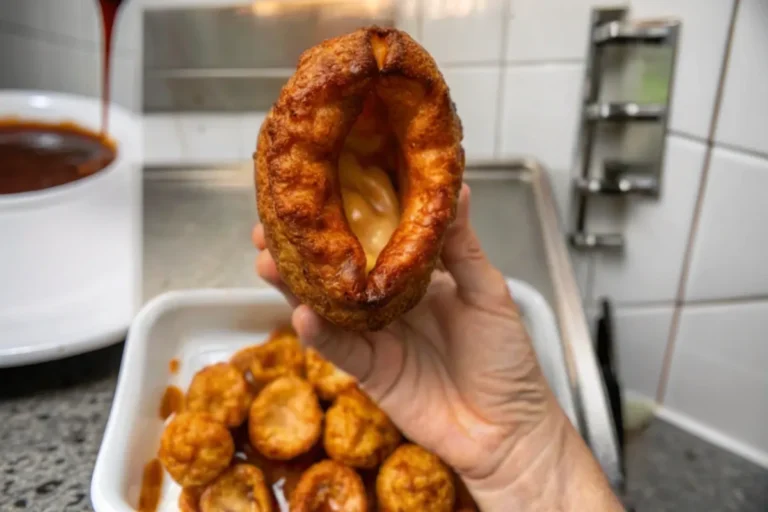Ingredients
-
8 large eggs
-
2 cups all-purpose flour
-
2½ cups whole milk
-
Splash of water
-
1 teaspoon salt
-
½ teaspoon pepper
-
Shortening, vegetable oil, or beef drippings (1 teaspoon per tin well)
Instructions
-
In a large mixing bowl, whisk eggs, flour, salt, and pepper together. Slowly add milk and water, whisking until smooth.
-
Cover the batter and let it rest in the fridge overnight (or at least 30 minutes on the counter).
-
Preheat oven to 230°C (450°F). Place 1 teaspoon of fat into each muffin tin well and heat in the oven until oil is very hot and shimmering.
-
Carefully pour batter into the hot oil, filling each well halfway to three-quarters full. You should hear a sizzle.
-
Quickly return tin to oven and bake for 23 to 30 minutes until puddings are tall, golden, and crisp. Do not open the oven door while baking.
-
Remove from oven and serve hot with gravy, or cool and freeze for later.
Notes
-
Resting the batter overnight improves texture and rise.
-
Always heat oil until nearly smoking before adding batter.
-
Yorkshire puddings freeze well: reheat at 200°C (400°F) for 5–8 minutes.
- Prep Time: 10 minutes
- Cook Time: 25 minutes
- Cuisine: British
